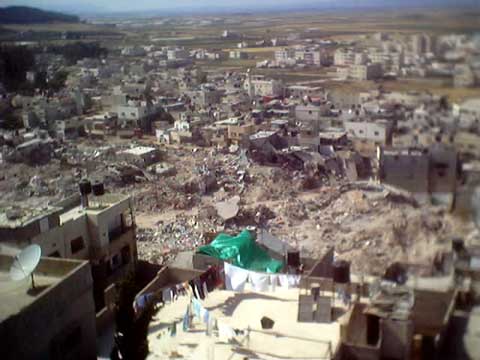                 |
                       
This is a unique document. It was published in Yediot Aharonot, Israel's most widely circulated tabloid paper, on May 31, 2002. It is the first absolutely sincere Israeli eye-witness testimony on what actually happened in Jenin, by one of those who did it and are proud of it.
Apart from the shocking revelations, this is also a startling human document.
After publication - and in spite of it - the unit to which the man belongs received from the army command an official citation for outstanding service.
- I entered Jenin, driven by madness, by desperation, in the worst condition possible. I told my wife: "If anything happens to me, at least someone will take care of you".
- The funny bit was, I didn't even know how to operate the D-9.
- Within two hours, they taught me to drive forwards, and make a flat surface.
- I tied the 'Beitar' football team flag to the back of the tractor and told them: "Move away, let me work.".
- For three days, I just erased and erased.
- I kept drinking whisky to fight off fatigue.
- I didn't see dead bodies under the blade of the D-9, but I don't care if there where any.


Tsadok Yeheskeli, Yediot Aharonot
Moshe Nissim, nicknamed "Kurdi Bear |

